TOM FRANCIS
REGRETS THIS ALREADY
Hello! I'm Tom. I'm a game designer, writer, and programmer on Gunpoint, Heat Signature, and Tactical Breach Wizards. Here's some more info on all the games I've worked on, here are the videos I make on YouTube, and here are two short stories I wrote for the Machine of Death collections.
Theme
By me. Uses Adaptive Images by Matt Wilcox.
Search
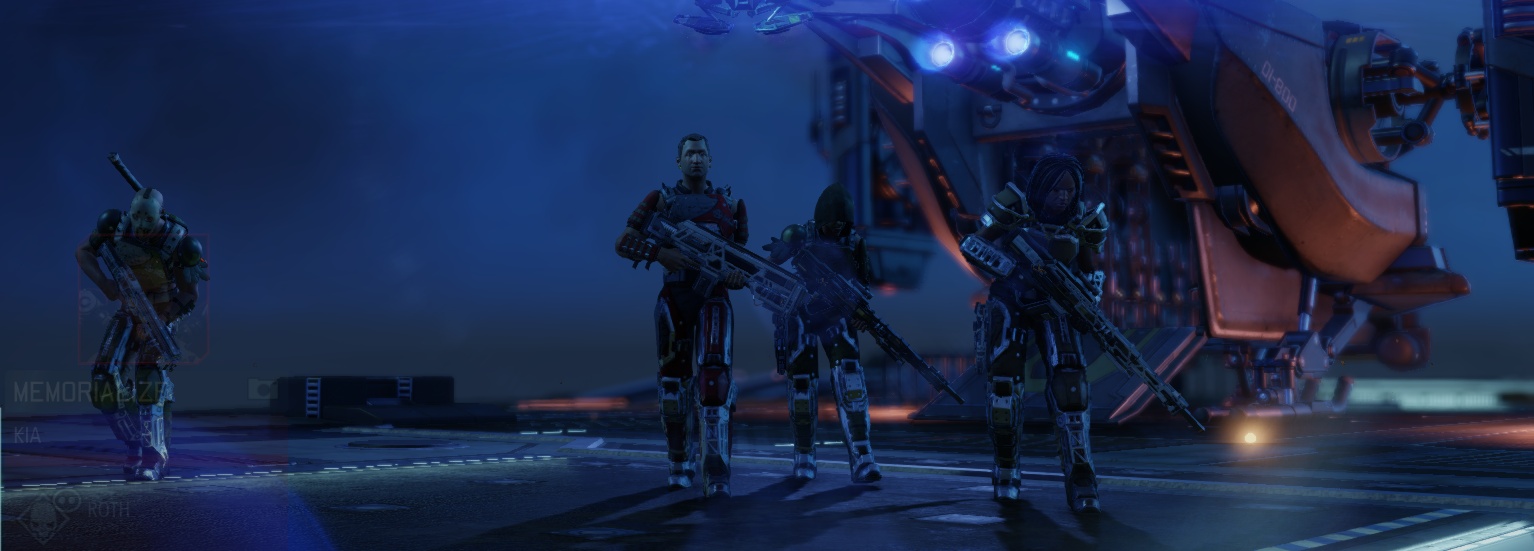
A Leftfield Solution To An XCOM Disaster
This story starts exactly like the last great mission I had in an XCOM game: I kinda took on two missions at once. And everyone got tired from the first one, so we had to send our B-team on the other: to rescue a VIP. Continued
Heat Signature Release Date And Launch Celebrations
Heat Signature will be out on Steam 21st of September 2017! At time of writing, that’s Thursday of next week. It’s for Windows PCs, other platforms will depend on how this one goes.
We don’t do pre-order bonuses because I don’t want to pressure you to buy before reviews are out. But I am super grateful to those who buy at launch, because our whole future depends on how we do that first week. So we’re doing a few special things to celebrate it and thank those of you who are joining us: Continued
What Works And Why: Prey’s Intro
The start of Prey is one of very few narrative-based game intros that really worked for me. And it comes not that long after one in the same genre that especially didn’t: Mankind Divided. So I thought it might be interesting to replay both and compare what works and what doesn’t. Not to pick on Mankind Divided – I loved the game after the stumbling start – but just because you can be more specific with praise if you have something to contrast it against.
I talked through my thoughts on both intros as I replayed them in the videos here, and I’ll summarise and add some conclusions through the magic of text. Obviously both parts of this post spoil the intros to these games. Continued
Morphblade Is Out!
This is the game I started last year, when I needed a break from Heat Signature, and I’ve continued to tinker with it on the odd weekend or evening. It’s crystallised into something I really enjoy playing, so I asked testers what they thought it was worth. The average answer was $5, so $5 it is! It’s out now on Steam, for Windows.
Morphblade was heavily inspired by Imbroglio, so I asked Michael Brough’s permission before developing and selling it, and he was kind enough to give his blessing. The core idea that your location determines your weapon is straight from Imbroglio, but along the way I changed pretty much everything else.
So you move around a hexagonal grid slicing, smashing and bursting waves of nasty red bugs. Each hex you move to turns you into a different weapon: on a Blades hex you can kill things to your sides, on an Arrow you can fire yourself through two enemies in a row. And between waves, you choose how to build out the grid to your own design.
If you’re subscribed to the Humble Monthly Bundle (on 3/3/2017), you already have it. If not, grab it from Steam for $5.
Here’s a video that explains it better!
Games Successfully Developed At Stugan 2016 So Far
I’m in a cabin in the woods in Sweden for seven weeks, with 20ish other game developers, all working on our own games. This is Stugan. None of us have finished yet, but we have successfully developed the following non-digital games along the way, and I release them to you now: Continued
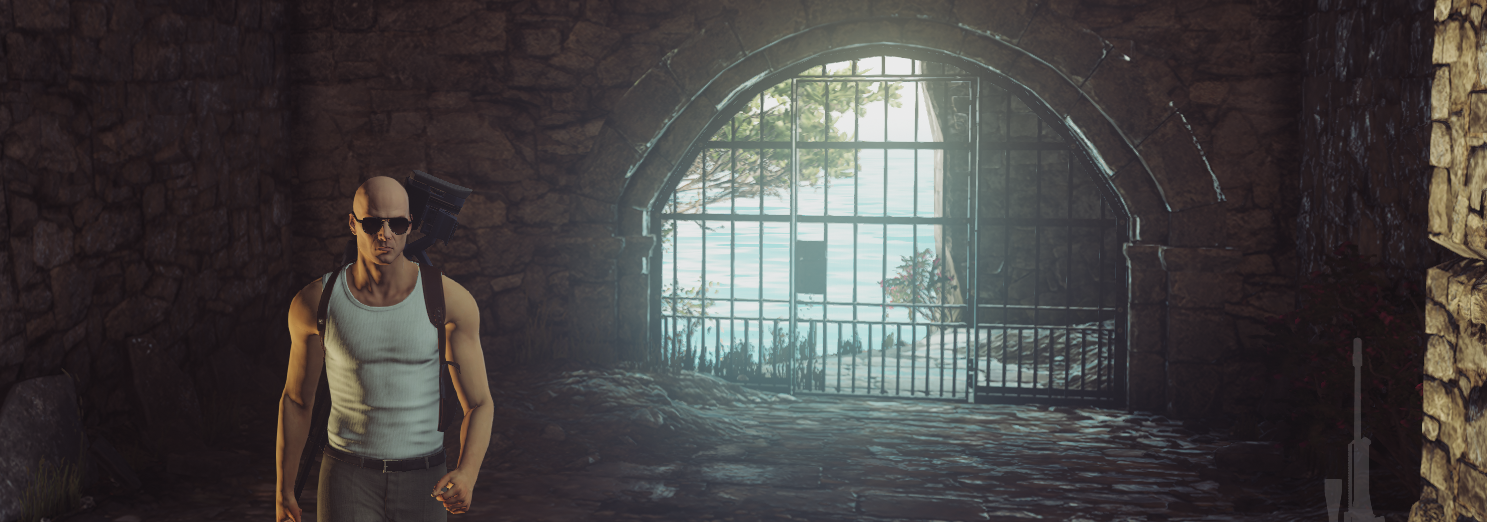
Rewarding Creative Play Styles In Hitman
They’re releasing the new Hitman game bit by bit: one mission a month, set in a new and sprawling location. Good Hitman missions have always been replayable, but this time the whole game is built around it: a Challenges list tells you of the dozens of different ways to take out the target, an Opportunities system highlights little tricks they’ve designed to let you get the target alone, and a Contracts system lets players challenge each other to take out other targets in particular ways.
And it’s great. It takes a bit of getting used to: the levels are much higher security than Blood Money’s, so you pretty much have to use the Opportunities provided to get your targets alone, but there’s still lots of scope to mix that in to your own evil plans, and the levels are so much bigger, richer, and more complex.
But each of the big systems I mentioned does have some shortcomings, and their strengths suggest an even better way to embrace what makes replaying Hitman missions so enduringly fun. So first off, here’s where I think they fall a little short: Continued

The Witness
The Witness is a very pretty island with hundreds of puzzles on iPad things. Some of those puzzles are brilliant, most are decent, many are repetitious or boring, some are aggressively irritating. Luckily none of the good ones are locked off by bad ones. That’s my review, I’m mostly making this post to put up all the best screenshots I took. These are pretty spoiler-free, they only reveal that “There is a place that looks like this”, although a couple have solved puzzle panels in them so don’t look too closely if you have a photographic memory.
After the pretty shots, and a warning, I’m also gonna dump the scrawled-over shots I used to solve some of the trickier puzzles, in case that’s interesting. One of the game’s stranger quirks, to me, is that despite having 523 draw-a-line-on-an-iPad puzzles, its interface for doing this is not as good as a standard paint program, so I often fell back on one of those. Continued
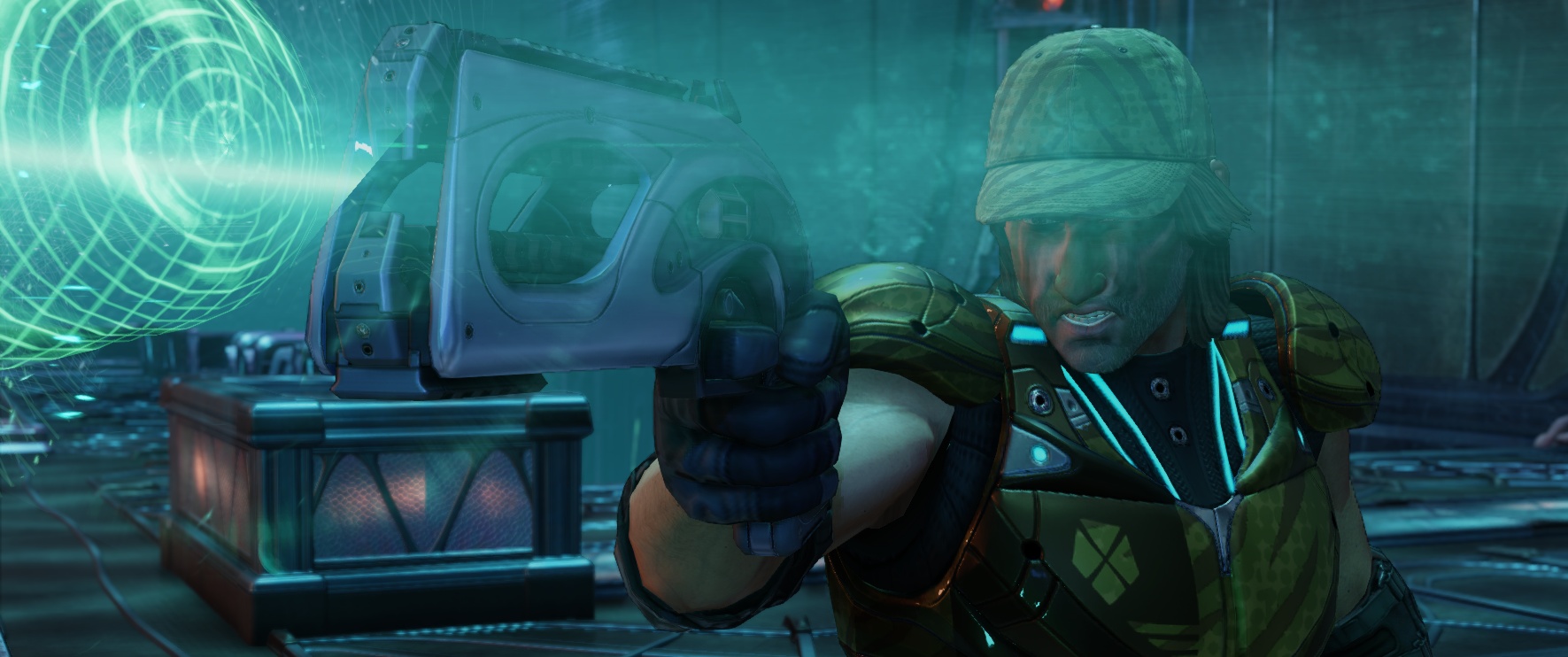
Solving XCOM’s Snowball Problem
What’s snowballing? In XCOM, if your troops survive the mission, they get stronger, tougher and get more abilities, which makes them more likely to survive future missions and get tougher still. If they die, they’re replaced by vulnerable, weak rookies, who are likely to die and be replaced by vulnerable, weak rookies.
If you’re finding the game easy, it gets easier. If you’re finding the game hard, it gets harder.
That’s bad. And it’s not just theory-crafting, that’s exactly how my XCOM 2 campaign played out: early on we got crushed repeatedly, then a few lucky missions got us off the ground, and after that my people became almost unstoppable for 35 missions straight – even after I upped the game difficulty.
Any game with persistent resources will have some snowbally tendencies: success has to get you something, or failure has to cost you something, otherwise it’s not really persistent. And some parts of XCOM’s snowballing are too good to lose: unlocking cool abilities for my favourite troops is why I play XCOM.
So you can’t scrap that, but what could you do? Here are some ideas. Continued
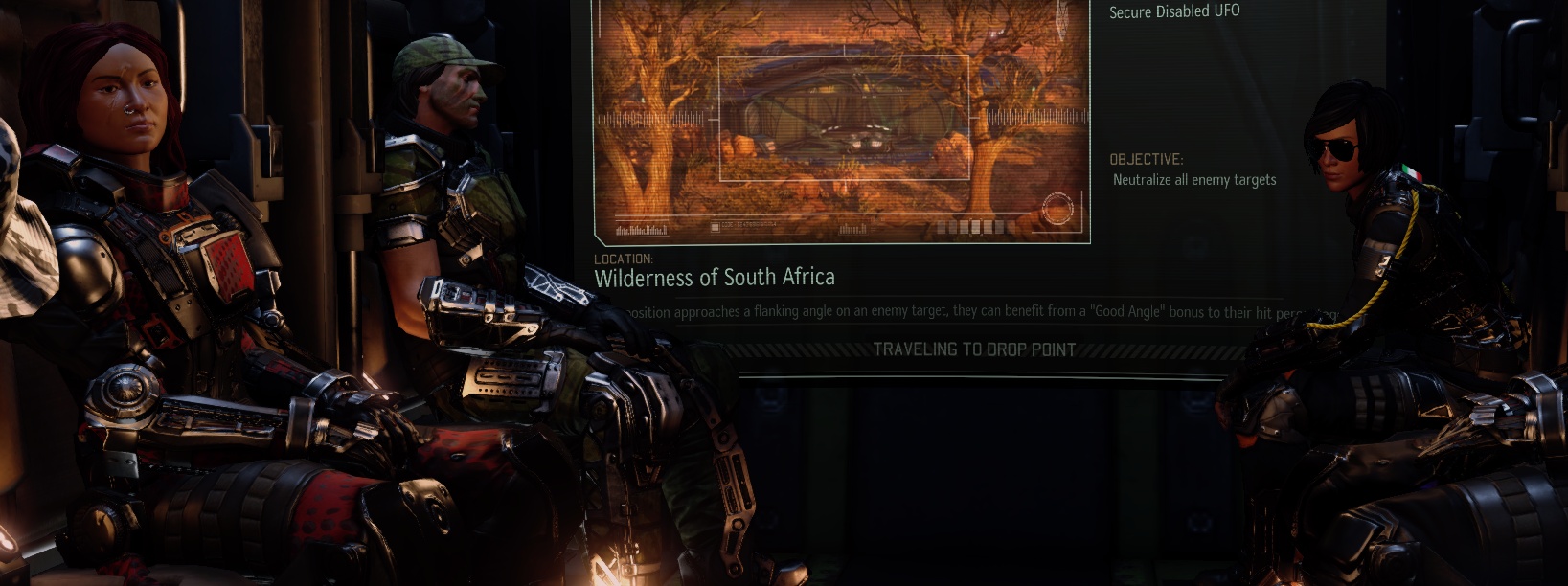
Kill Zone And Bladestorm
I took on a ‘Very Difficult’ mission in XCOM 2 earlier, to protect some device from attacking aliens. I was determined to do it because the reward was a Scientist, and they’ve been impossibly rare in my campaign so far. We immediately ran into two groups of very tough enemies, and though we had good position and lots of explosives, some unseen, extremely powerful enemy was attacking the objective every turn while we fought. Once they were mopped up, we had no time to be cautious: my two rangers had to sprint to the petrol station housing the objective just to distract the aliens there, with no moves left to fight them off. Continued

An Idea For More Flexible Indie Game Awards
I just read Zach Gage’s post proposing some changes to the IGF. My summary of his problems with the current system would be:
- For ‘best audio’, it’s not clear whether jurors should a) prioritise audio alone, or b) take into account the quality of the rest of the game and how important audio is to it.
- Currently jurors usually go with b), which “leads to games that are very well designed making it into multiple categories”, reducing the number of distinct games recognised.
- Medium-length single player games also get disproportionately recognised because they’re easier to judge than huge or multiplayer games, and feel more significant than tiny mobile games.
Generally I think b) is fine, but I do agree that over-celebrating single games is needless, and I think the categories themselves are a pretty rigid and inadequate way of capturing what’s worth celebrating in games.
Zach’s suggestion is to change the categories to reflect game length/type, and have developers choose one category to submit for. I’m not wild about this because a) the categories are still rigid and don’t capture gaming’s diversity of form, and b) a developer could screw themselves by miscategorising their game, which is not the skill we are trying to evaluate or award.
As it happens I’ve been thinking about a different kind of award ceremony I’d like to see ever since the BAFTAs in 2013, and I think it would address a lot of this. Continued

A Tale Of Arabian Nights
I just played my first full game of Tales of Arabian Nights, with my friends Chris and Pip. It’s a board game that’s very story driven: each turn you have an ‘encounter’, and choose a vague verb for how to deal with it: aid, pray, rob, follow, avoid, etc. Then another player looks up and reads out a more detailed account of what happened, and how it affects you. These chain together into a journey, and you win by accumulating Story points and Destiny ones. This was my character’s story: Continued
Thoughts On Fallout 4 And Invisible Inc’s Contingency Plan
On the latest two Crate and Crowbar podcasts I talk about what I’ve been up to in these two games, and what I think of them. Here are the bits where I do that, Fallout first! Continued
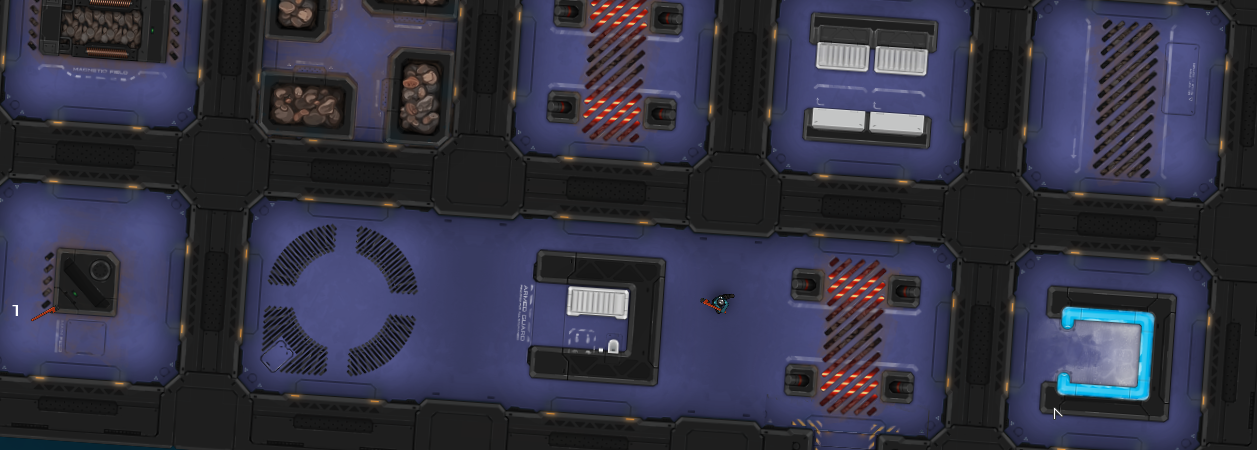
Teaching Heat Signature’s Ship Generator To Think In Sectors
I haven’t talked about the way I randomly generate spaceships in Heat Signature since this post – before it even had actual art. That’s partly because I’ve barely touched it since then. I showed the game to developer friends and the press in LA and SF a few weeks ago, and got lots of great input and ideas, but the main thing I came away thinking was: the on-board game needs to be more interesting. And I think better ship interiors are the foundation of that. Continued
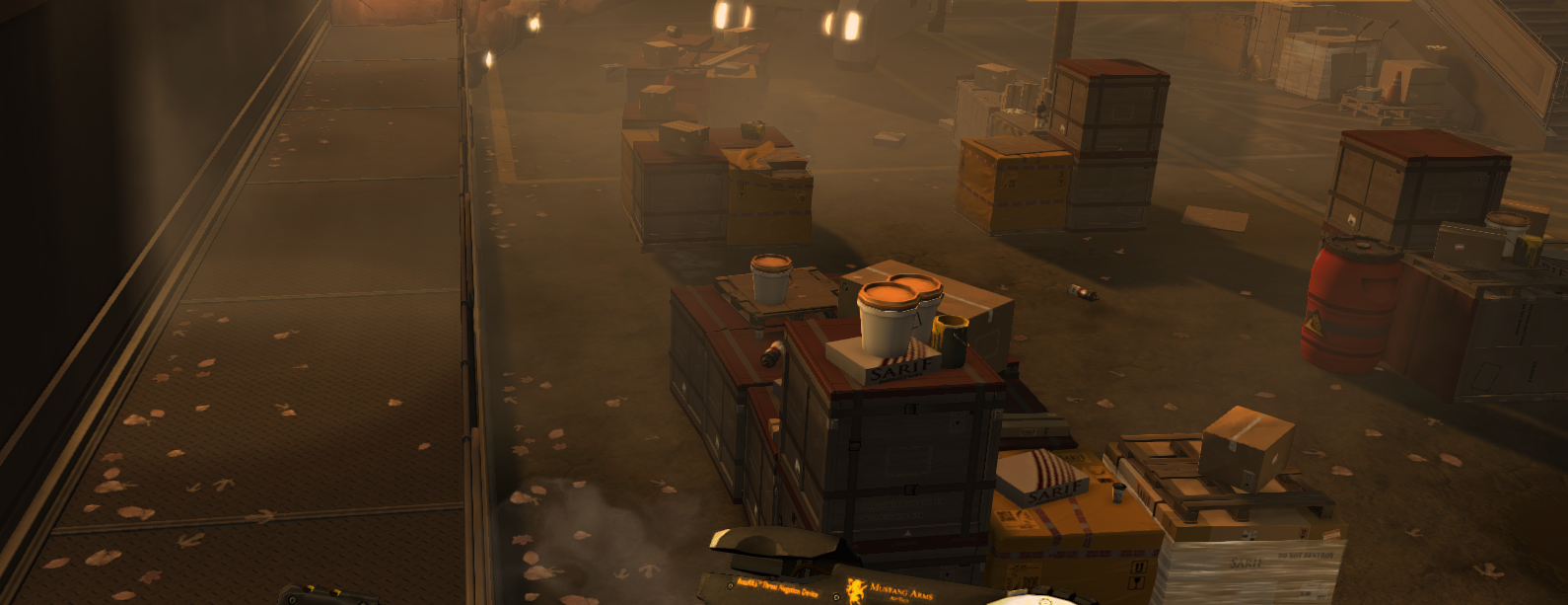
What Works And Why: Multiple Routes In Deus Ex
Deus Ex’s appeal is often boiled down to ‘lots of options’, but obviously that doesn’t quite cover it. Right now I’m looking to redesign the ‘sneaking inside spaceships’ part of Heat Signature, so I need more than a vague line about what’s cool about Deus Ex – I need a practical understanding of specifically why it works, and why similar games don’t. So I’m replaying Deus Ex 1 and 3, to figure out what it is I want to steal. And I think it is options, but it’s not just number. They have to fill a certain set of requirements, and this is my attempt to nail down what those are.
I’ve been mostly playing Human Revolution so far, but I’ll also use some examples for DX1 since there’s so much overlap. Continued
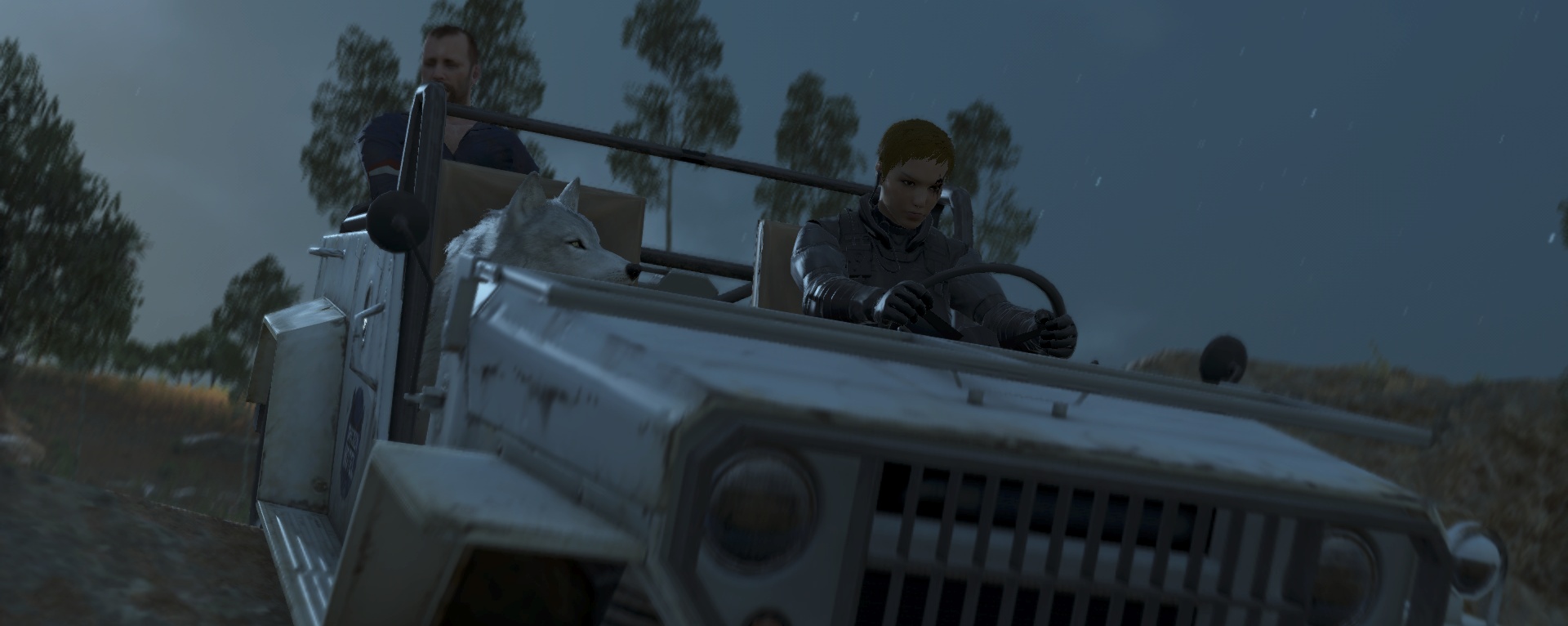
Doing Your Job In Metal Gear Solid V
This post is part of a series. I mention abilities and tools but no story spoilers.
A lot of the time, MGS V is just a very good stealth game. You have lots of tools to distract, evade or take down your enemies, and they’re all very satisfying to use – just like Deus Ex 3. Its levels are encampments dotted seamlessly around a huge open world – just like Far Cries 2-4. Its layered systems turn failures into new challenges rather than end points – just like Invisible Inc. But none of those things are new, and MGS V sometimes feels like something that is.
Those times, for me, are not during some particularly great mission, or when some unexpected chain of events creates a cool story. They’re after: when the guards lie sleeping or dead, the cargo containers are ballooning skyward, I’m scampering out with the target (too weak to be similarly ballooned) slung over my shoulders. Continued